Facilities
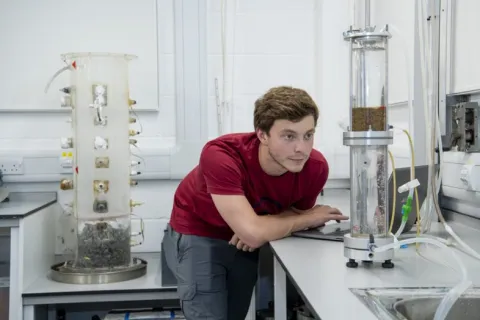
Engineering laboratories
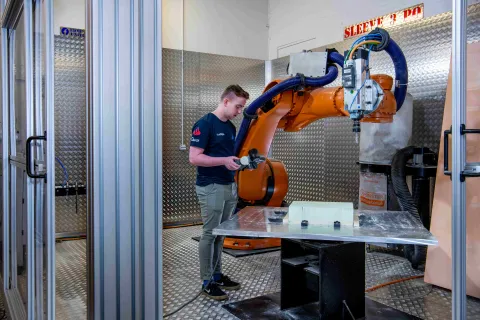
Propulsion and Engine Systems Engineering (Advanced Mechanical Engineering Science) (MSc) starting September 2025 for 1 year
MSc Propulsion and Engine Systems Engineering explores the performance and reliability of rocket motors, jet engines and compressors.
Our master’s courses combine the traditional aspects of mechanical engineering with interdisciplinary subjects so you can specialise in a career you want. Our international centre for research and teaching is recognised across the world.
Our propulsion engineering degree explores the design, monitoring and analysis of propulsion and engine systems.
You’ll learn to analyse and design advanced electrical systems, and study subjects like gas turbines, internal combustion and, electrical and hybrid engines. You’ll have the opportunity to study optional modules in areas you want to learn more about, including:
As part of this UK master’s in propulsion engineering you’ll complete a research project, you can choose to base yours on a range of topics such as engine materials, combustion modelling and electrical motors.
You’ll learn from academics who are leading their fields and teaching the latest in technological advancements. Studying at Southampton gives you access to a global network of companies, shared facilities and specialist expertise to enhance your learning.
We regularly review our courses to ensure and improve quality. This course may be revised as a result of this. Any revision will be balanced against the requirement that the student should receive the educational service expected. Find out why, when, and how we might make changes.
Our courses are regulated in England by the Office for Students (OfS).
This course is led by Dr Georges Limbert, Associate Professor within Engineering and Physical Sciences at the University of Southampton. Learn more by visiting Dr Limbert's staff profile.
We offer 3 other pathways on this Advanced Mechanical Engineering degree. Your other options are in:
This master's programme is accredited by the Institution of Mechanical Engineers (IMechE) as meeting the academic requirement for Further Learning, for Chartered Engineer registration. Candidates must hold a BEng/BSc undergraduate first degree that is accredited for Chartered Engineer (CEng) registration to comply with full CEng registration requirements.
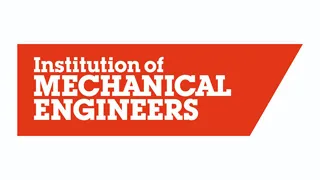
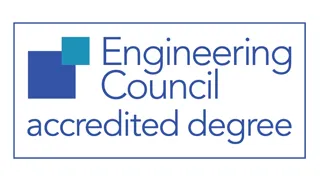
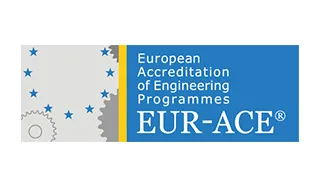


This course is based at Highfield.
This qualification is awarded by the University of Southampton.
The Course Description Document details your course overview, your course structure and how your course is taught and assessed.
You’ll need a 2:1 degree in one of the following subjects:
You must also have a 2:1 score in two modules from the following list of topics:
Find the equivalent international qualifications for your country.
This programme only accepts applicants who have studied at an X1, X2, X3 or X4 institution.
If English isn't your first language, you'll need to complete an International English Language Testing System (IELTS) to demonstrate your competence in English. You'll need all of the following scores as a minimum:
We accept other English language tests. Find out which English language tests we accept.
If you don’t meet the English language requirements, you can achieve the level you need by completing a pre-sessional English programme before you start your course.
If you don’t meet the academic requirements, you can complete a pre-master's programme through our partnership with OnCampus. Learn more about the programmes available.
If you don't have the exact entry requirements, but you have significant work experience in this sector we’ll assess your relevant professional experience, your subject knowledge and your aptitude for learning.
Your application will be considered on individual merit and you may be asked to attend an interview.
Please contact us if you're not sure you have the right experience or qualifications to get onto this course.
Email: enquiries@southampton.ac.uk
Tel: +44(0)23 8059 5000
Our master’s degree in propulsion and engine systems engineering runs for 12 months. The first 8 months are mainly spent studying taught modules. Your lectures will be divided into two 12-week periods, referred to as semesters 1 and 2, both ending with exams.
Each semester you’ll study key topics and choose specialist modules that interest you. Our optional modules cover topics like spacecraft propulsion, materials, energy efficiency and acoustics.
Your final 4 months are spent on your research project, you’ll be able to choose from a range of topics to base yours on such as, combustion modelling, electrical motors and engine noise control.
Want more detail? See all the modules in the course.
The modules outlined provide examples of what you can expect to learn on this degree course based on recent academic teaching. As a research-led University, we undertake a continuous review of our course to ensure quality enhancement and to manage our resources. The precise modules available to you in future years may vary depending on staff availability and research interests, new topics of study, timetabling and student demand. Find out why, when and how we might make changes.
You must study the following modules :
To provide an introduction to power system analysis and power electronics, and an in-depth coverage of electrical machine operation and design in the context of applications from the fields of renewable energy, marine propulsion, robotics and electric veh...
This module develops aerodynamic and thermodynamic methods for design of gas turbine engines. Starting from considerations of aircraft requirements and basic thermodynamics and fluid mechanics, students learn how the overall engine design can be tailored ...
Motorised transport has transformed many aspects of human life over the past 120 years. Today’s automotive engineers, however, face the unresolved challenge of continuing that transformation in a sustainable manner. Therefore this module develops the stud...
This module consists core mechanical engineering topics to cover the six themes in Advanced Mechanical Engineering Sciences (AMES) MSc program, i.e. Engineering Materials, Biomedical Engineering, Mechatronics, Computational design, Propulsion and Engine S...
Within the context of your programme of study, students will undertake independent, original and critical research on a relevant topic. Students will then communicate the research objectives, methodology, analysis, results and conclusions effectively both...
This module is designed for MSc AMES students across all themes of the programme to supplement their technical modules and, more particularly, the core module FEEG6012 – MSc Research Project to prepare them for professional research planning and managemen...
You must also choose from the following modules :
This module explores from traditional conditioning monitoring of machinery to biomechanical systems (i.e. sensors to monitor body forces and motions). It covers condition monitoring strategies, including international standards, monitoring procedures and...
The basic concept of Computational Fluid Dynamics and numerical procedures (FVM/FDM) are introduced. The major focus is practical applications, including geometry and grid generation, using solvers and turbulence models in CFD packages, and interpretation...
This module covers applications of renewable energy, storage and nuclear power. The module is split equally across the three aspects of renewable energy, storage and nuclear power.
In this module, the emphasis moves away from alloy development and design, and focuses on the performance of structural materials in a range of engineering applications. The lectures draw on examples from applications of ceramics, steel, Al, Ti and Ni bas...
This module provides an introduction to the basic elements of acoustics for the purpose of meeting the fundamental needs of practising engineers. This module provides the knowledge and tools to understand and predict the behaviour of complex acoustical sy...
This module considers metallic alloys with special reference to applications in transport applications. The main materials considered are aluminium, titanium and nickel based alloys, and steel. Also metal based composites, and high temperature materials s...
This module on microstructural analysis and surface characterisation of materials and components considers Surface Profilometry, transmission electron microscopy (TEM), scanning electron microscopy (SEM), optical microscopy, diffraction techniques, energy...
This module covers the aspects of design and operation of modern fuels cells and photovoltaic systems. It discusses the fundamentals, structure, materials and operation of these systems. Students attending this module are expected to have understood th...
This module considers the basic theory and principles of operation of chemical and electric propulsion systems for spacecraft. Both solid and liquid propellant chemical propulsion systems are considered, as is a variety of electric propulsion systems util...
Hydrocarbon fuels contribute more than 85% of world energy production, but also contribute more than 60% of anthropogenic greenhouse gas emissions. As research continues to find alternative and more sustainable energy production technologies hydrocarbon f...
Tribological interactions are ubiquitous and have profound impact across all areas of engineering and everyday life. This module places emphasis on the future application of tribological engineering to address the contact mechanics, friction, wear, lubri...
The learning activities for this course include the following:
We’ll assess you through:
You’ll complete your research project and dissertation in the final 4 months of the course, with some preparation in semester 2.
It should bring together the skills you’ve learned and demonstrate your knowledge in at least one subject area.
You’ll need to source information, demonstrate critical analysis and evaluation, and presentation skills. The project must contain your own original ideas and explore a problem that requires the application of new research.
You’ll have your own personal academic tutor and also have access to our team of administrators who are a key point of contact for advice and information.
The employability and enterprise skills you'll gain from this course are reflected in the Southampton skills model. When you join us you'll be able to use our skills model to track, plan, and benefit your career development and progress.
Download skills overview

Choosing to do work experience is a great way to enhance your employability, build valuable networks, and evidence your potential. Learn about the different work and industry experience options at Southampton.
We are a top 20 UK university for employability (QS Graduate Employability Rankings 2022). Our Careers, Employability and Student Enterprise team will support you. This support includes:
We have a vibrant entrepreneurship culture and our dedicated start-up supporter, Futureworlds, is open to every student.
Your career ideas and graduate job opportunities may change while you're at university. So it is important to take time to regularly reflect on your goals, speak to people in industry and seek advice and up-to-date information from Careers, Employability and Student Enterprise professionals at the University.
Fees for a year's study:
If you're an international student on a full-time course, we'll ask you to pay £2,000 of your tuition fees in advance, as a deposit.
Your offer letter will tell you when this should be paid and provide full terms and conditions.
Find out about exemptions, refunds and how to pay your deposit on our tuition fees for overseas students page.
Your tuition fee covers the full cost of tuition and any exams. The fee you pay will remain the same each year from when you start studying this course. This includes if you suspend and return.
Find out how to pay your tuition fees.
Accommodation and living costs, such as travel and food, are not included in your tuition fees. There may also be extra costs for retake and professional exams.
Explore:
If you’re a graduate of the University of Southampton, you could be eligible for a 10% discount on your postgraduate tuition fees.
This can help with course fees and living costs while you study a postgraduate master's course. Find out if you're eligible.
A variety of additional funding options may be available to help you pay for your master’s study. Both from the University and other organisations.
Find out about funding you could get as an international student.
For further details of our admission process, read our step by step guide to postgraduate taught applications.
We’ll ask you to pay a £50 application assessment fee if you’re applying for a postgraduate taught course.
This is an extra one-off charge which is separate to your tuition fees and is payable per application. It covers the work and time it takes us to assess your application. You’ll be prompted to pay when you submit your application which won’t progress until you've paid.
If you're a current or former University of Southampton student, or if you’re applying for certain scholarships, you will not need to pay the fee. PGCE applications through GOV.UK and Master of Research (MRes) degree applications are also exempt. Find out if you’re exempt on our terms and conditions page.
If you're an international student you'll need approval from the UK's Academic Approval Scheme before you can study this course.
The ATAS certificate is required for certain sensitive postgraduate subjects.
When you apply you’ll need to submit a personal statement explaining why you want to take the course.
You’ll need to include information about:
References are not required for this programme.
Please include the required paperwork showing your first degree and your IELTS English language test score (if you are a non-native English speaker) with your application. Without these, your application may be delayed.
You'll be able to track your application through our online Applicant Record System.
We receive a high volume of applications for this course. This means you may not receive a response to your application for up to 12 weeks.
Unfortunately, due to number of applications we receive, we may not be able to give you specific feedback on your application if you are unsuccessful.
We treat and select everyone in line with our Equality and Diversity Statement.
Please contact us if you're not sure you have the right experience or qualifications to get onto this course.
Email: enquiries@southampton.ac.uk
Tel: +44(0)23 8059 5000